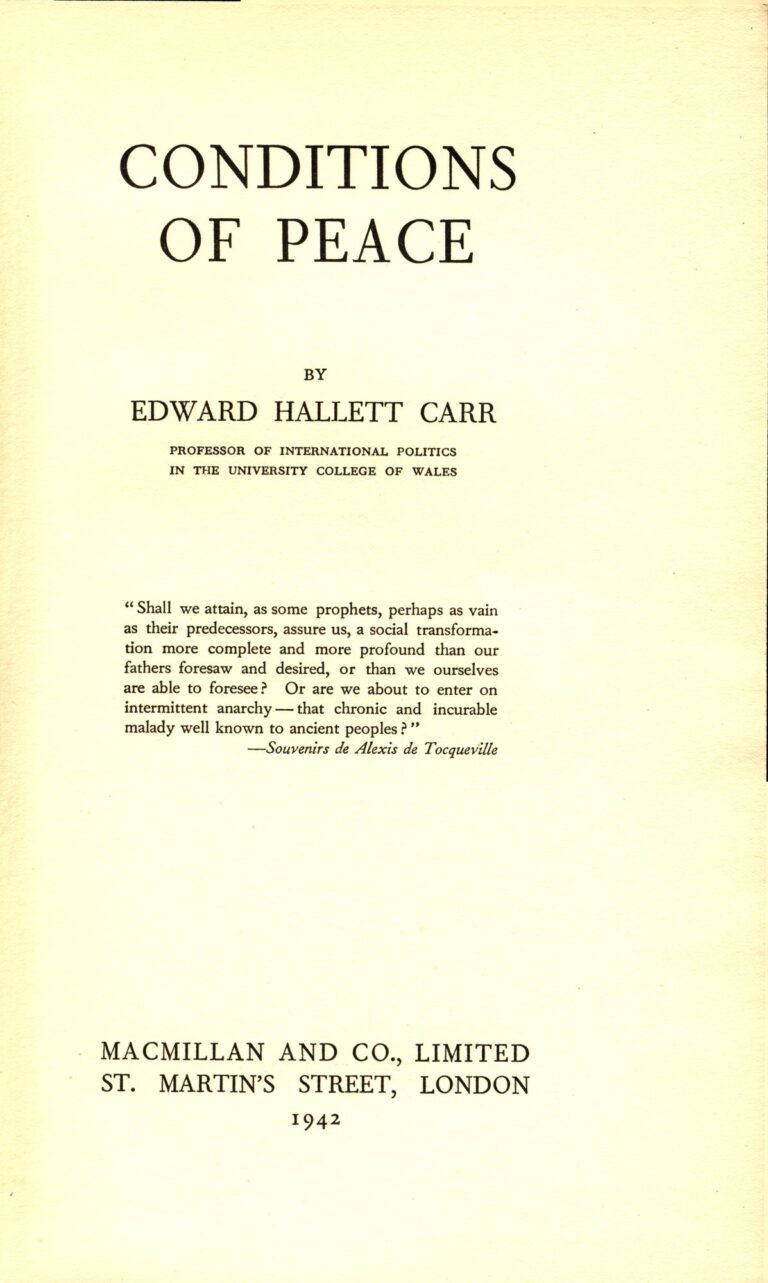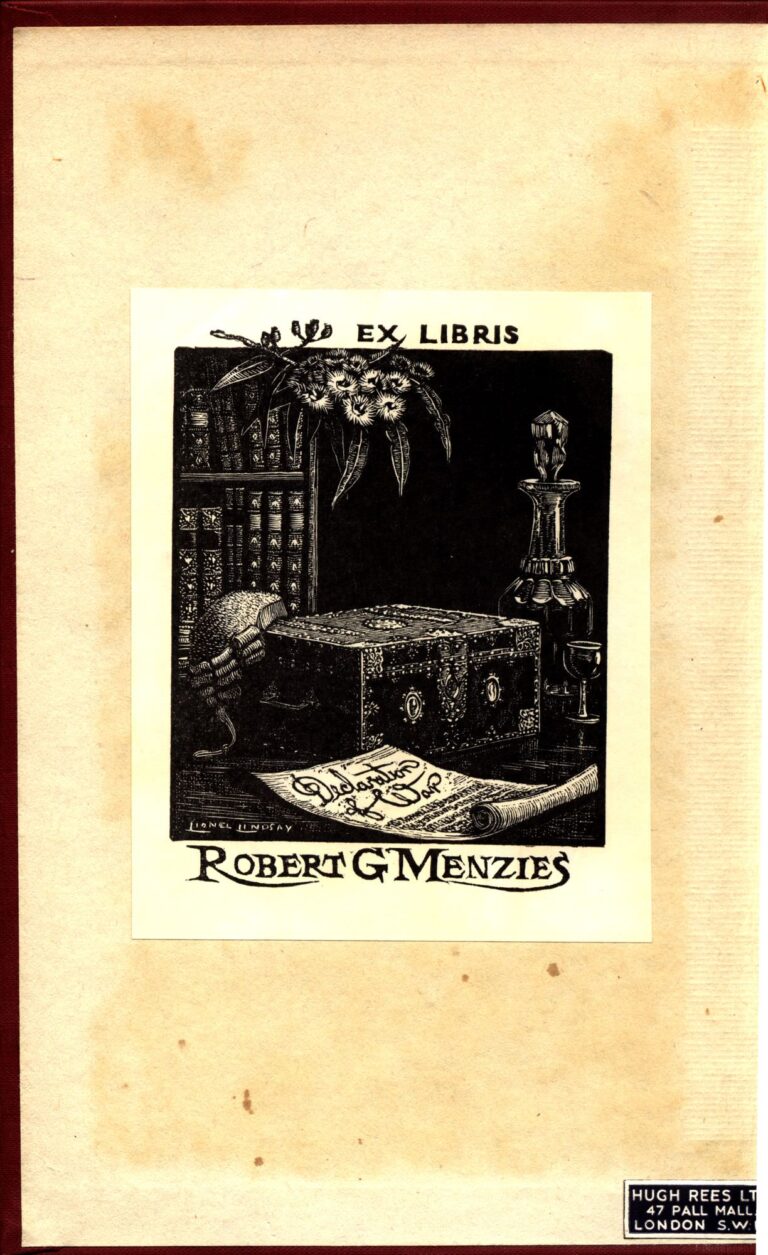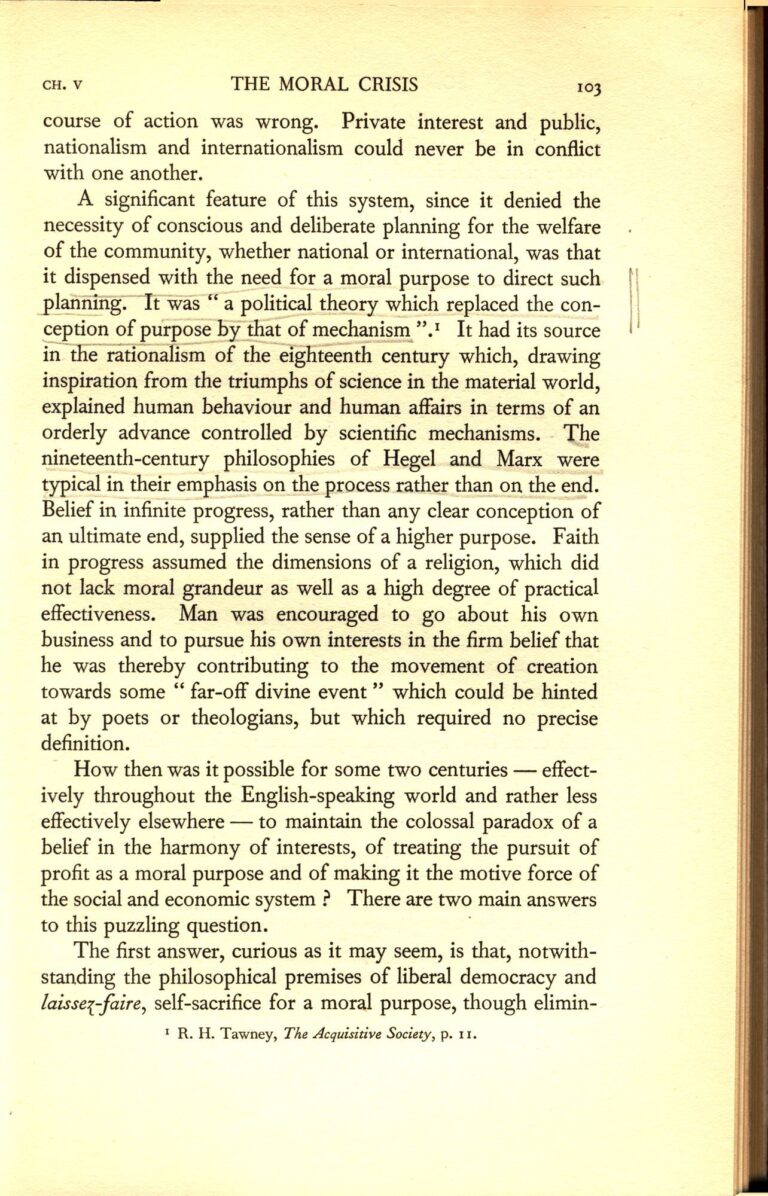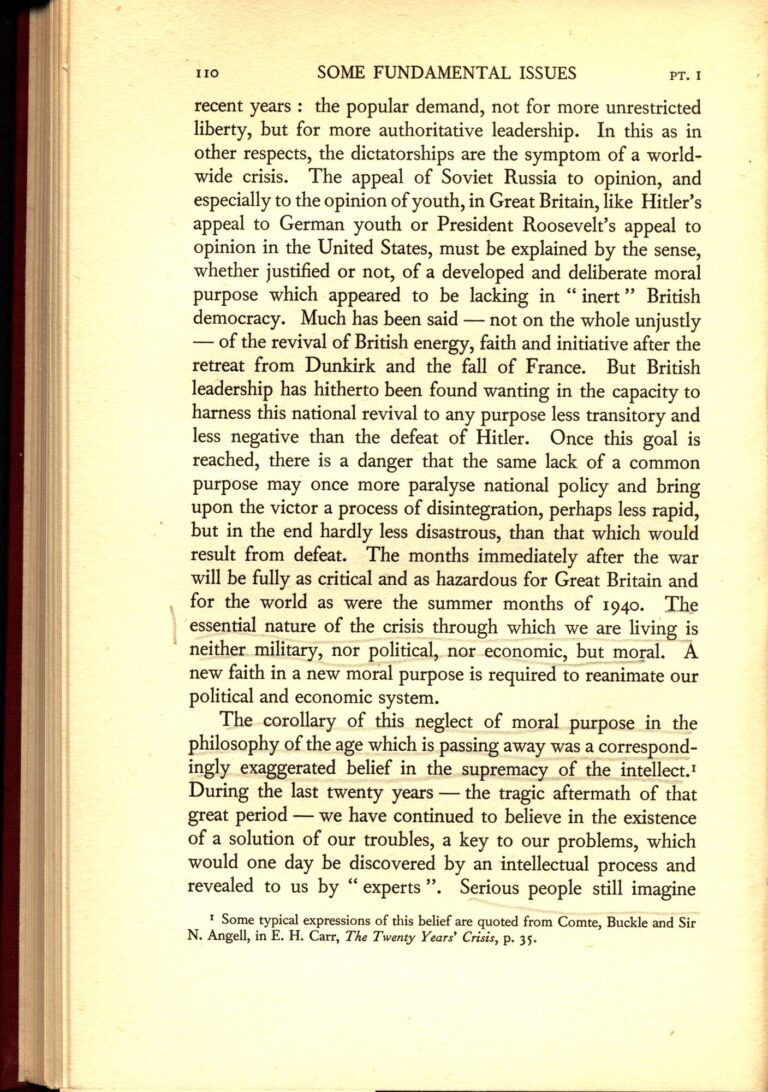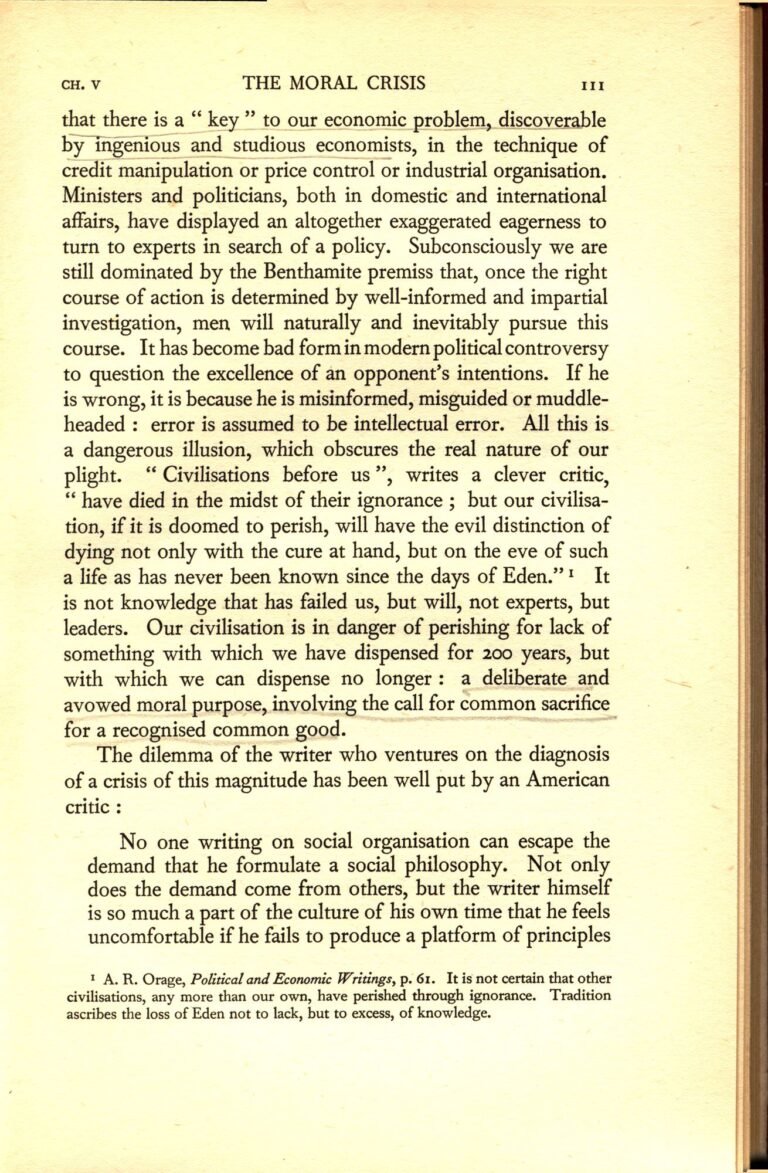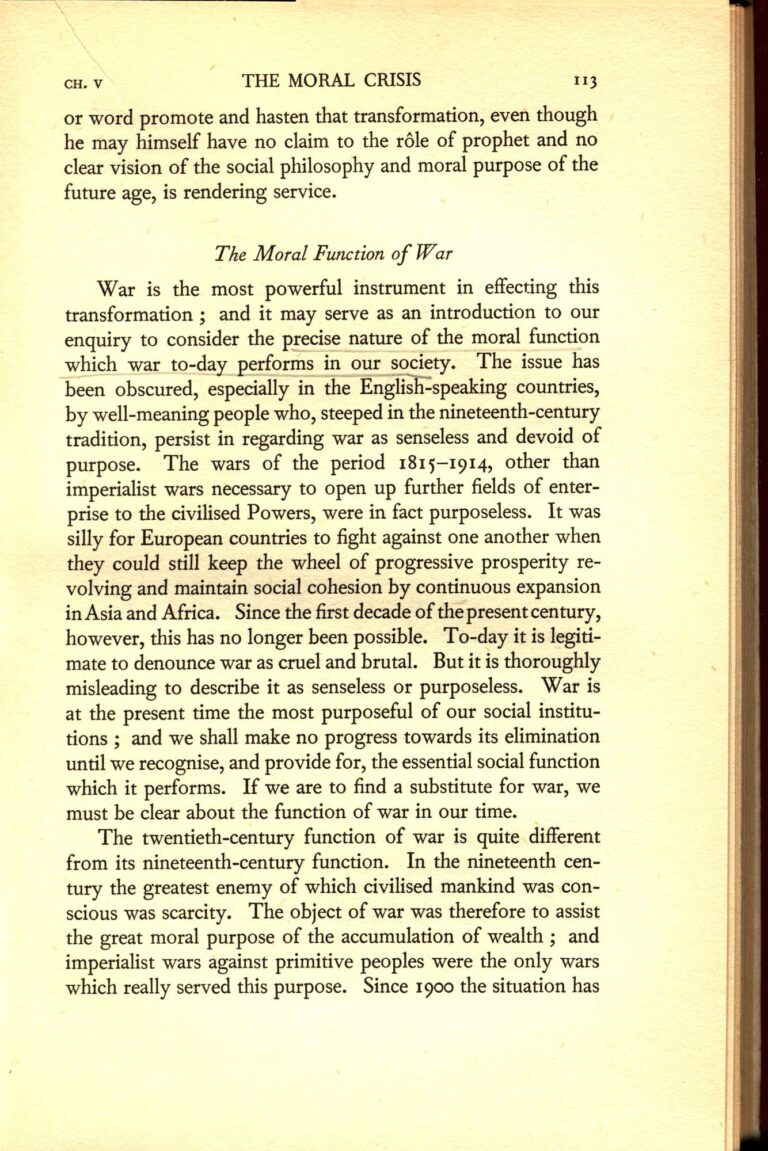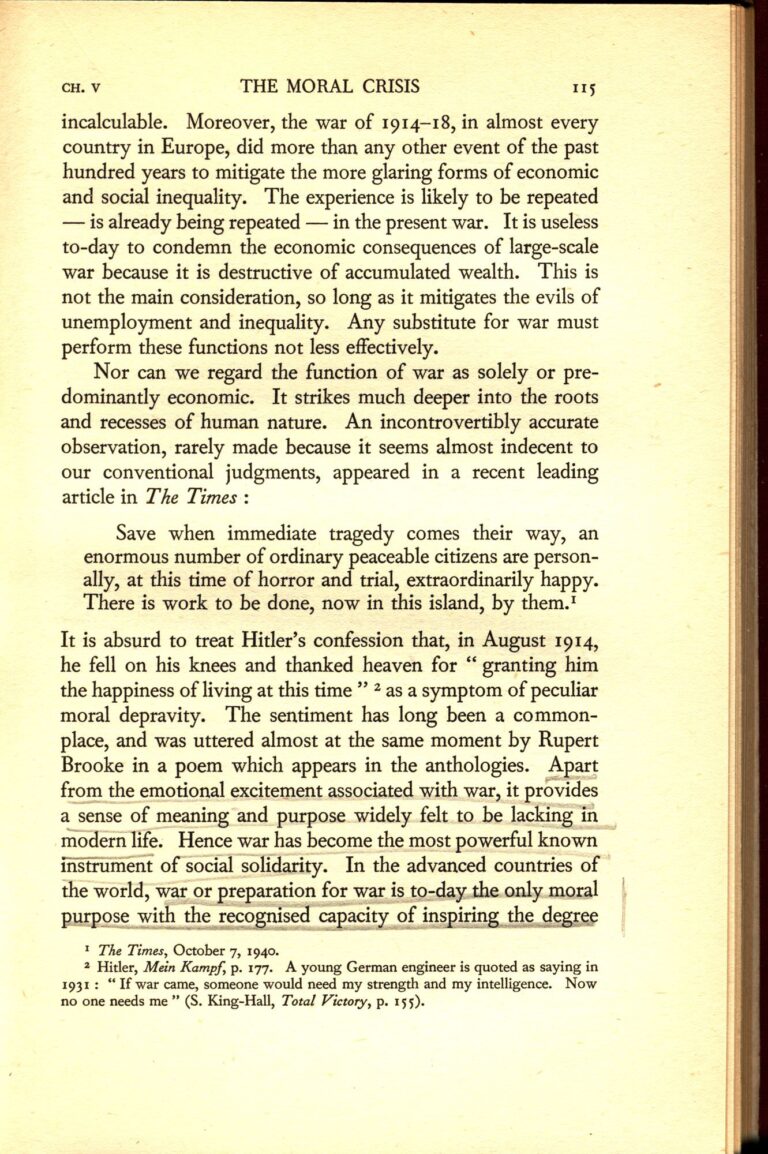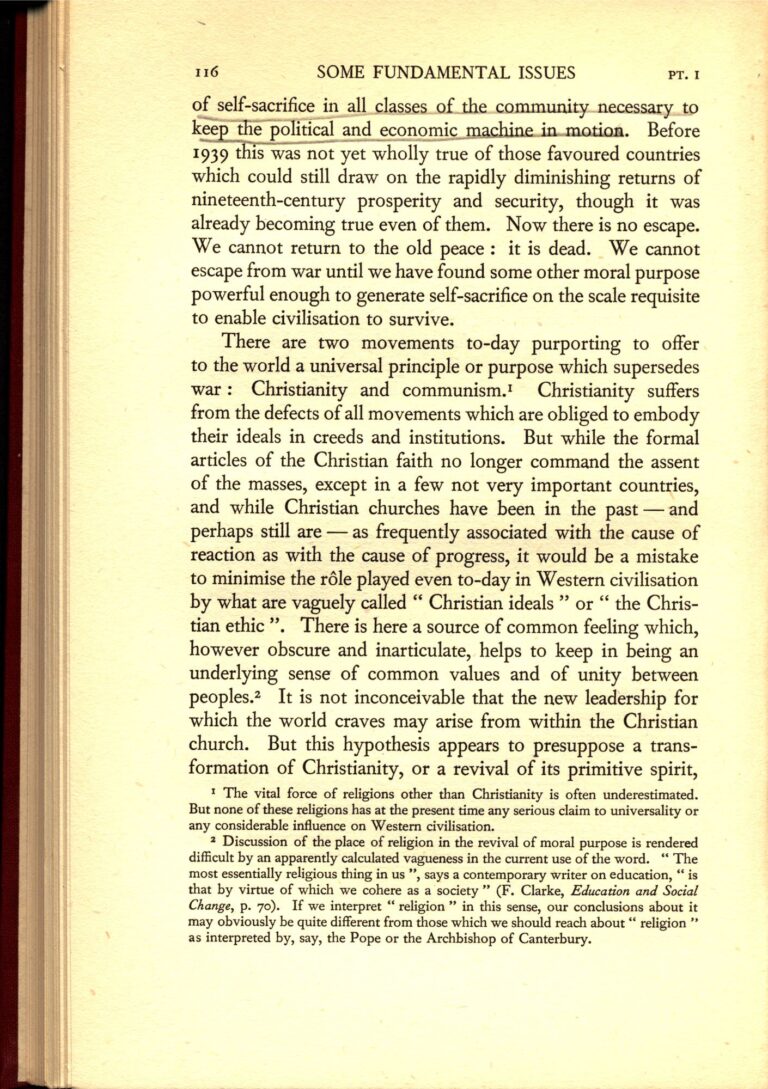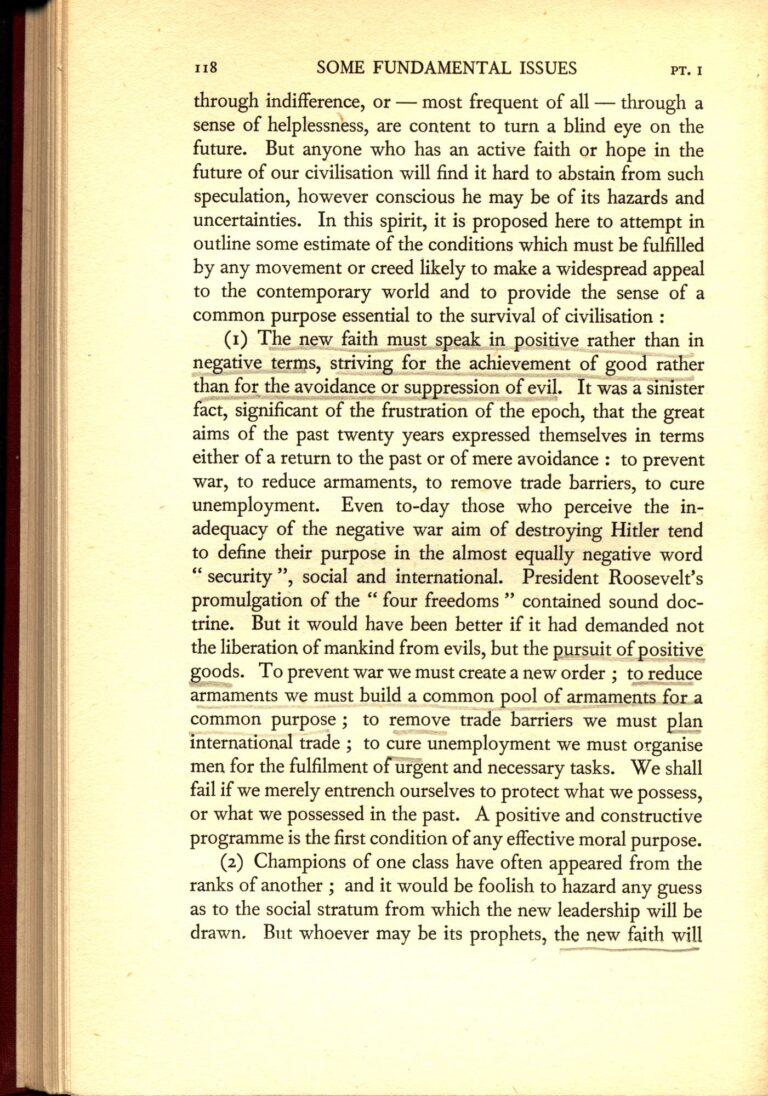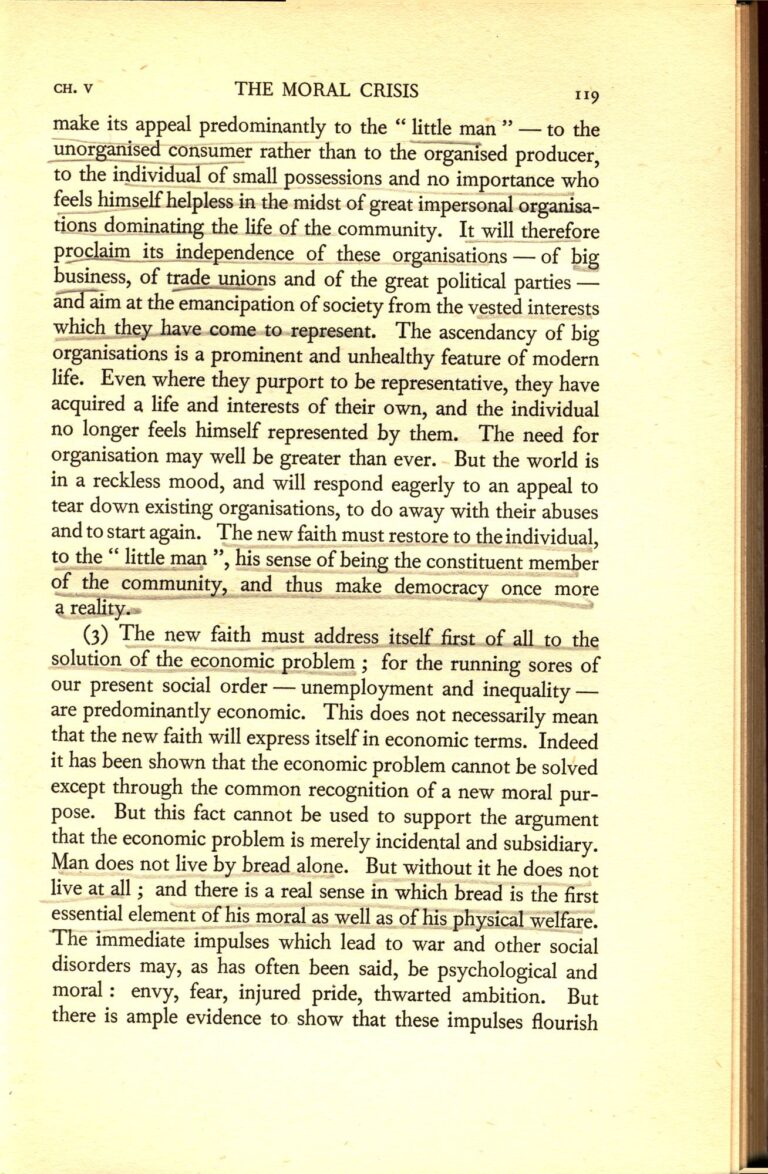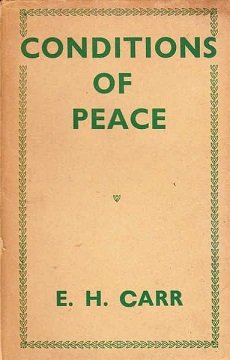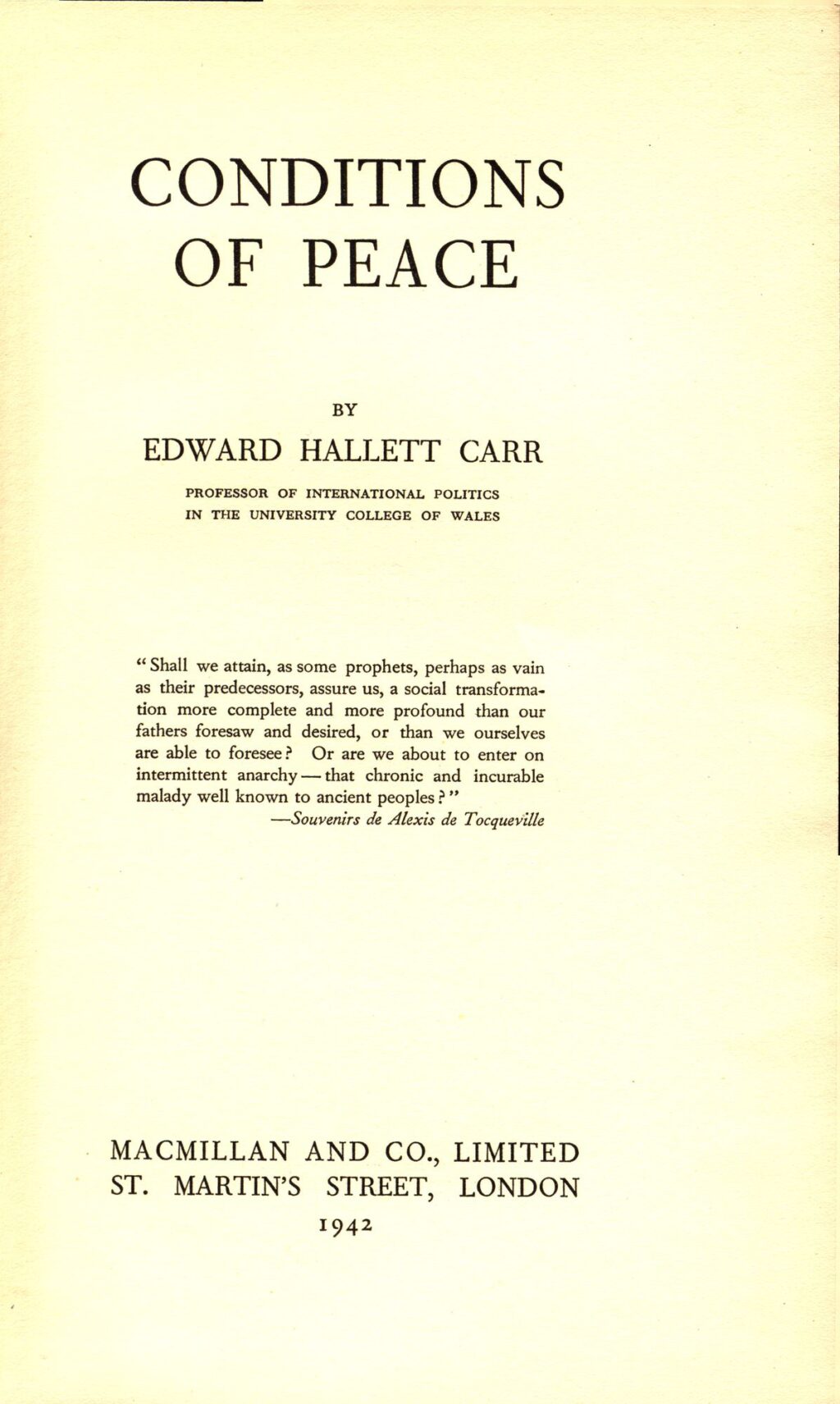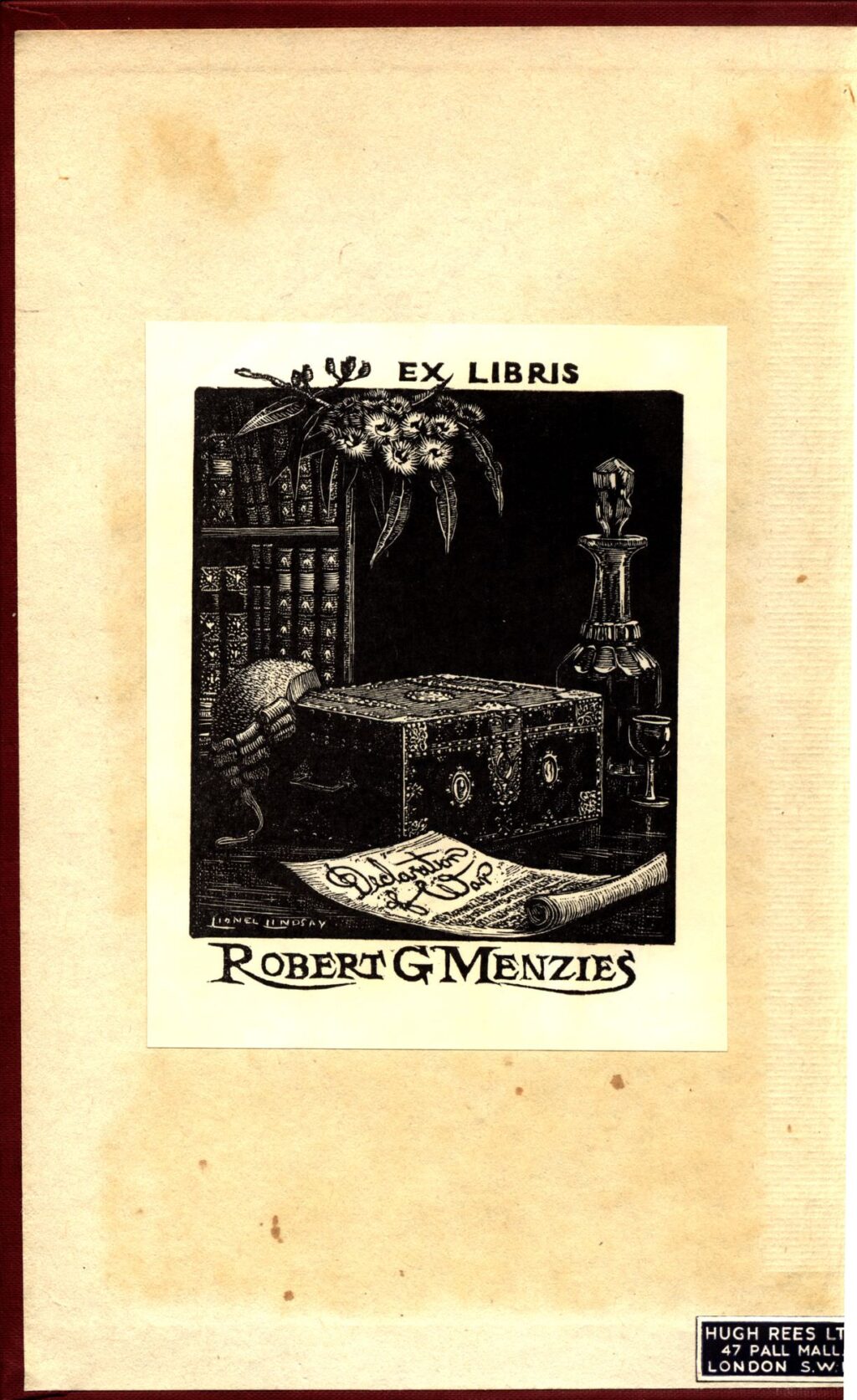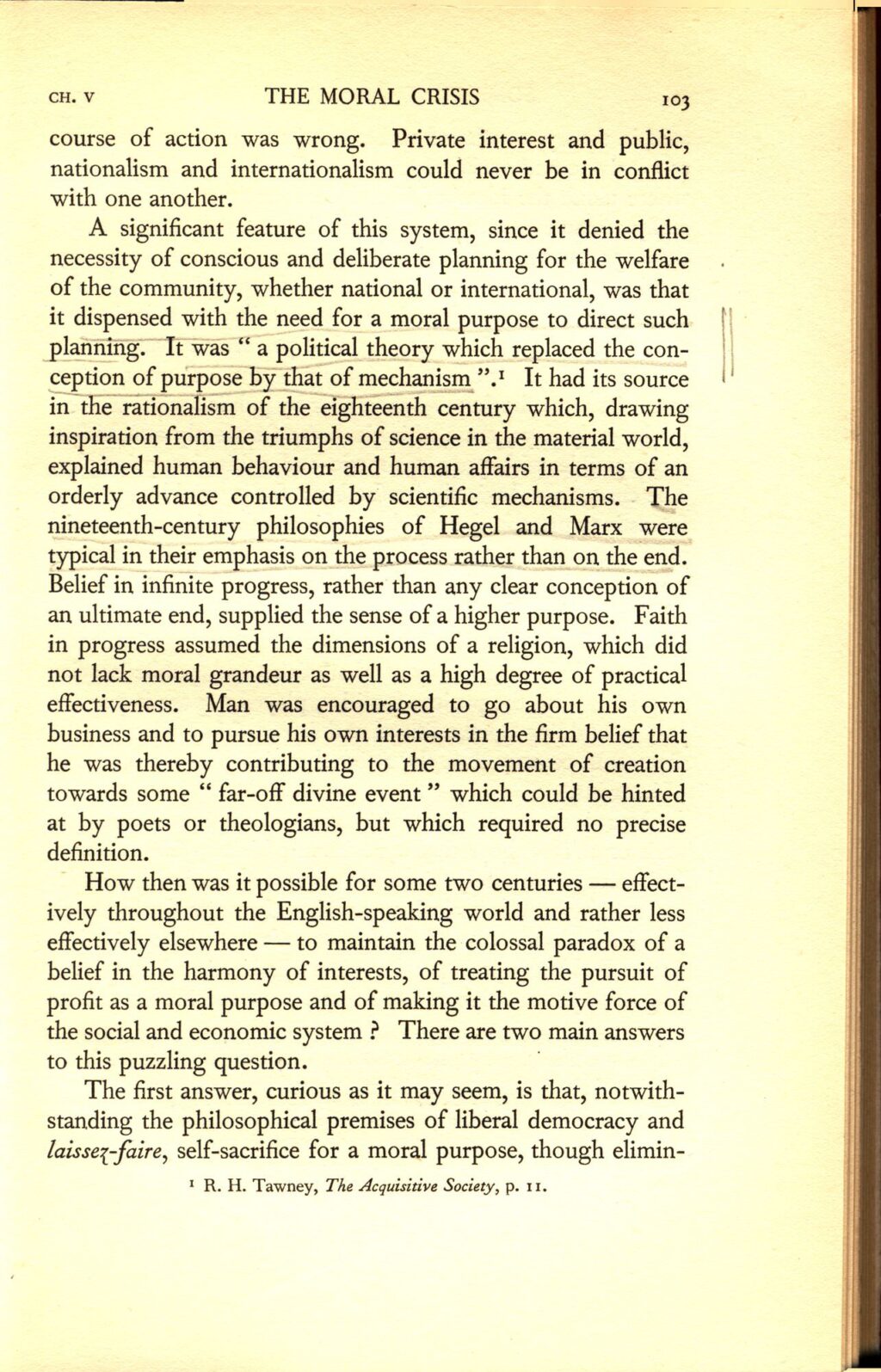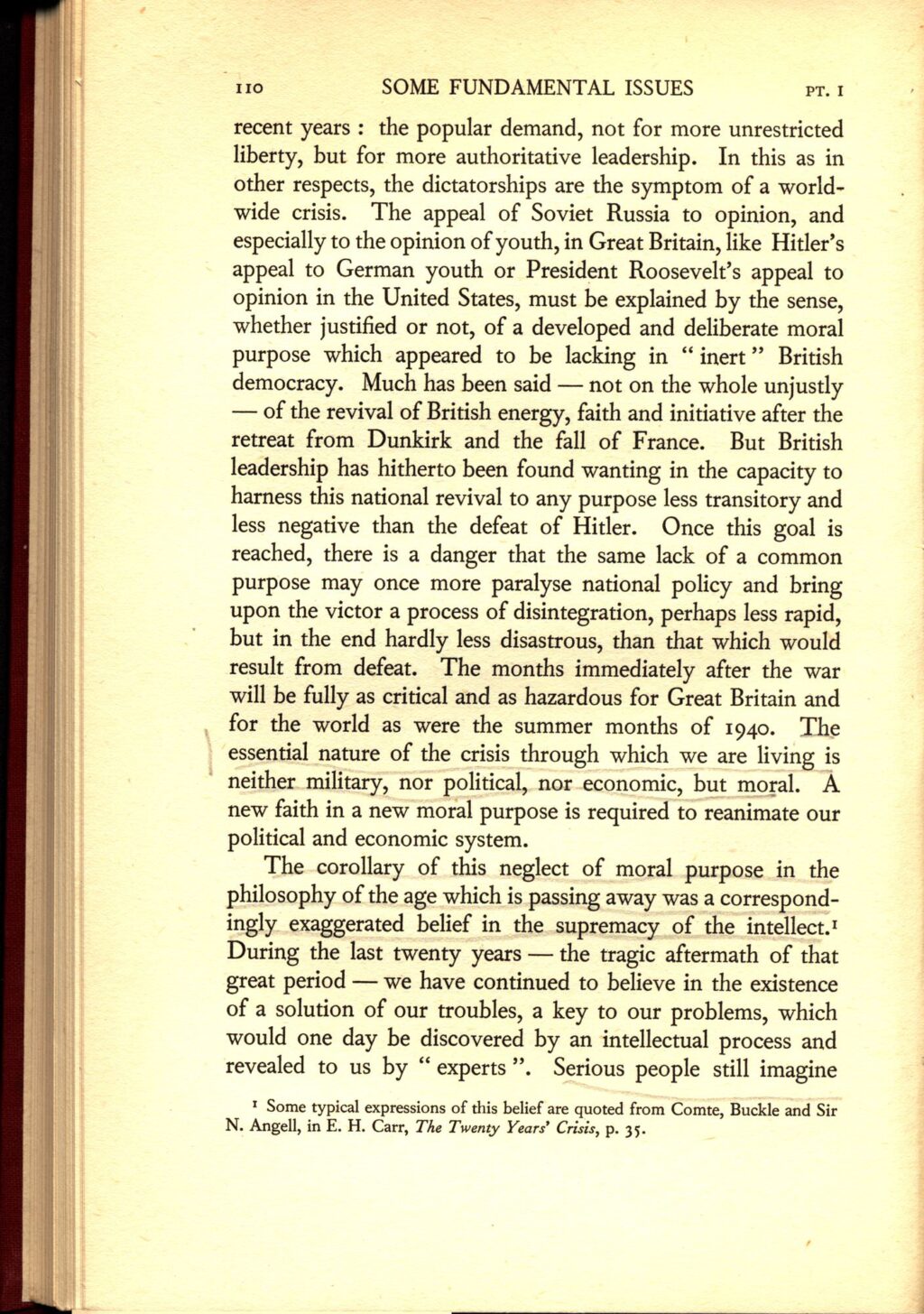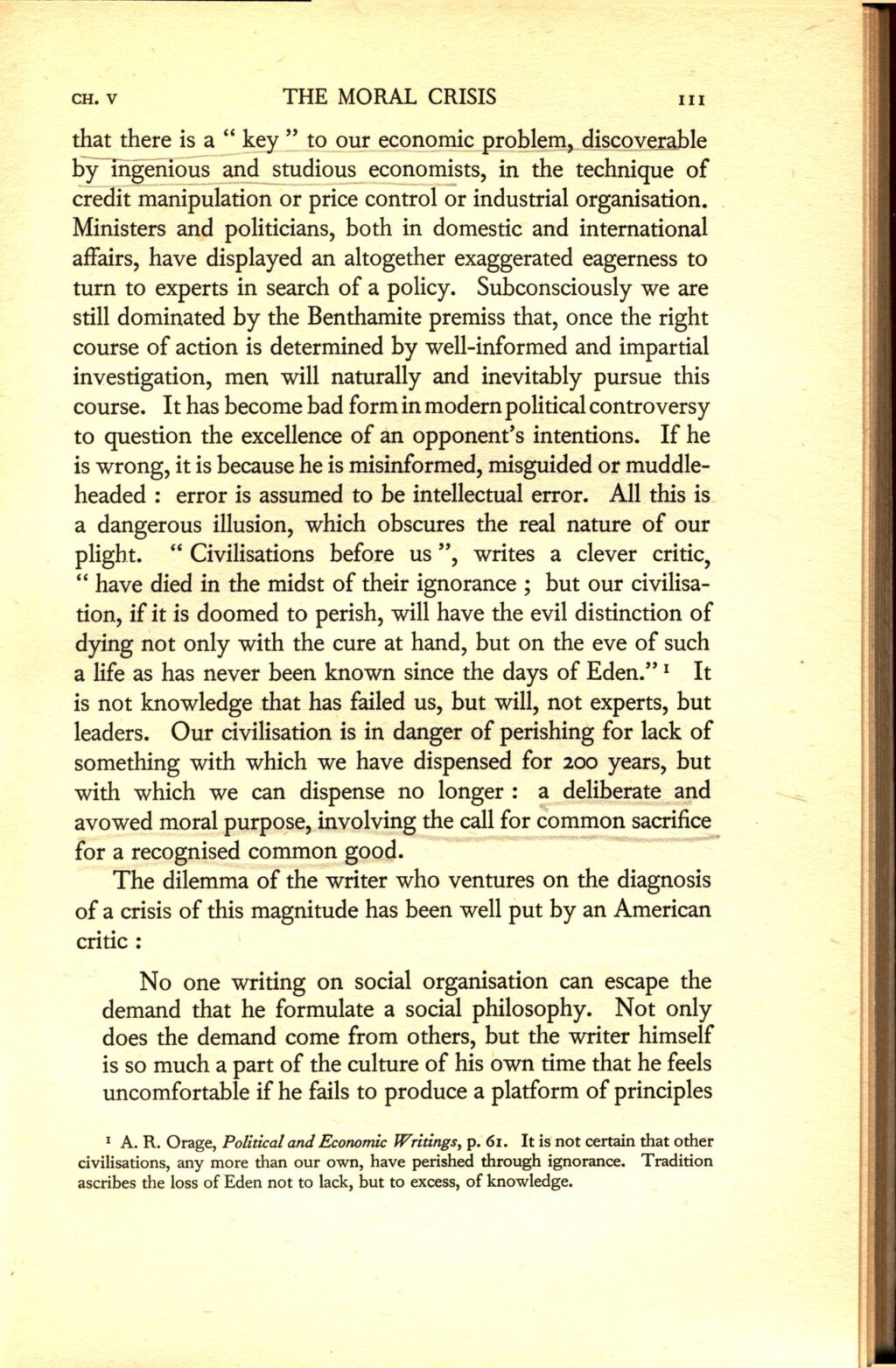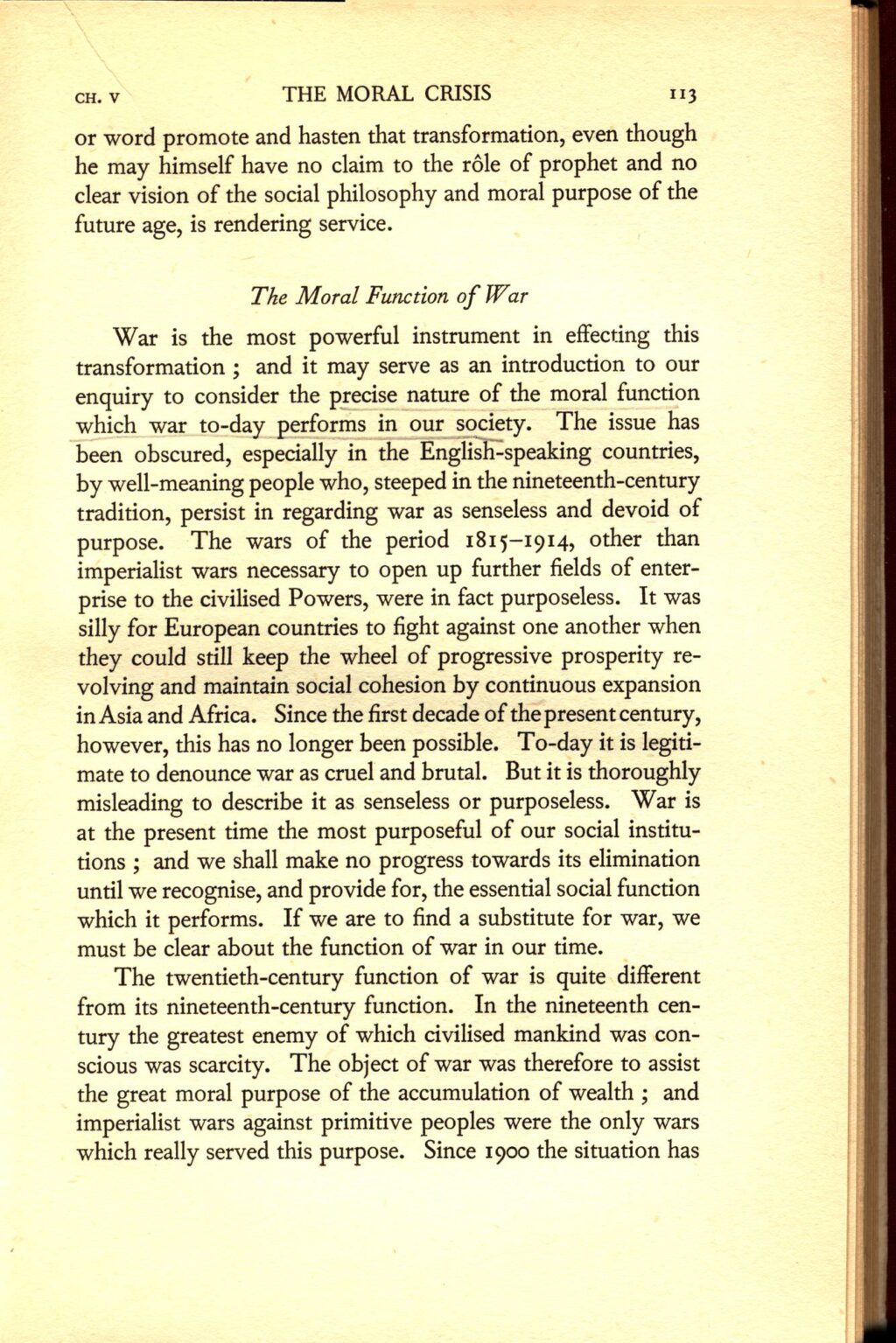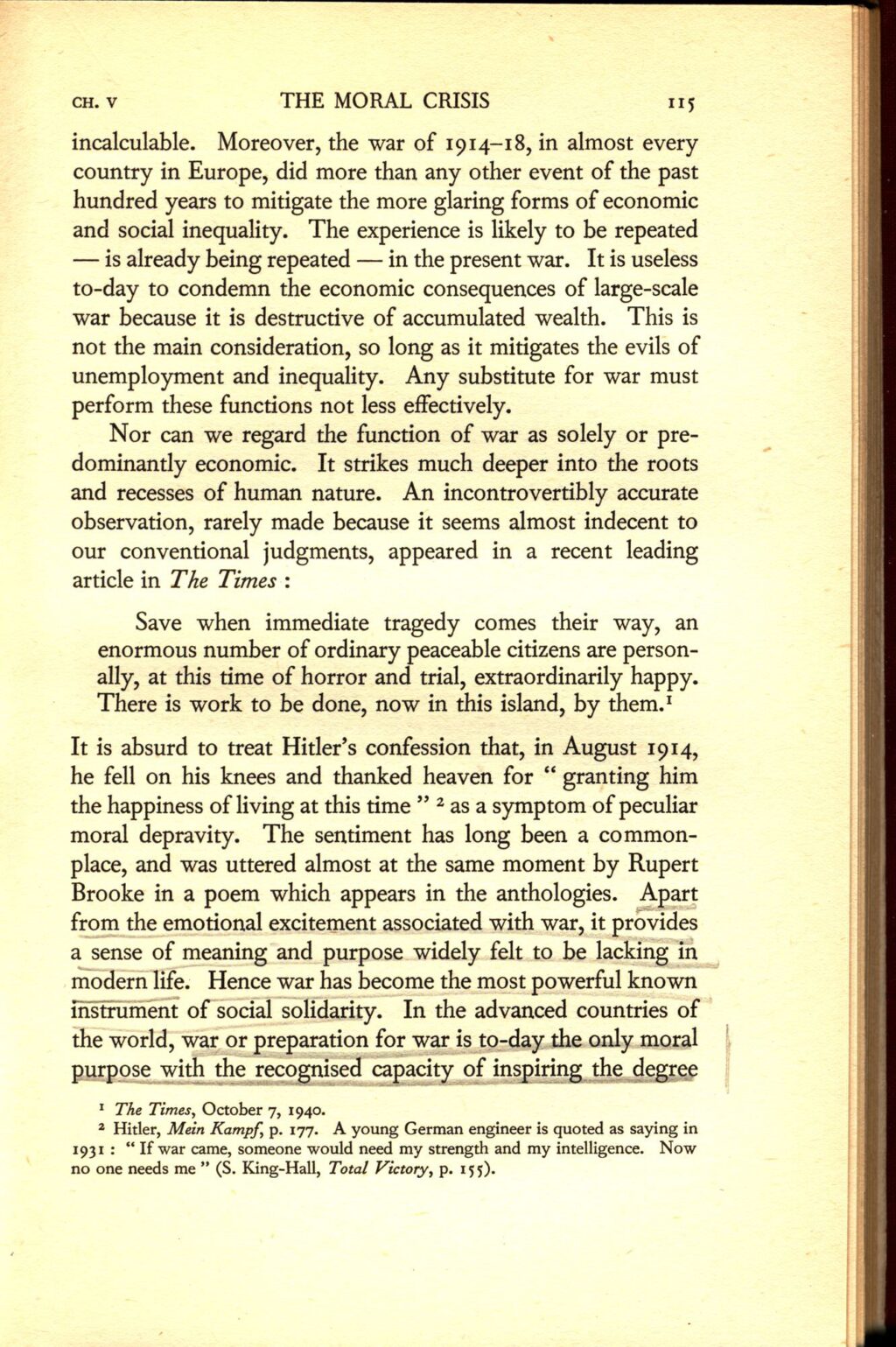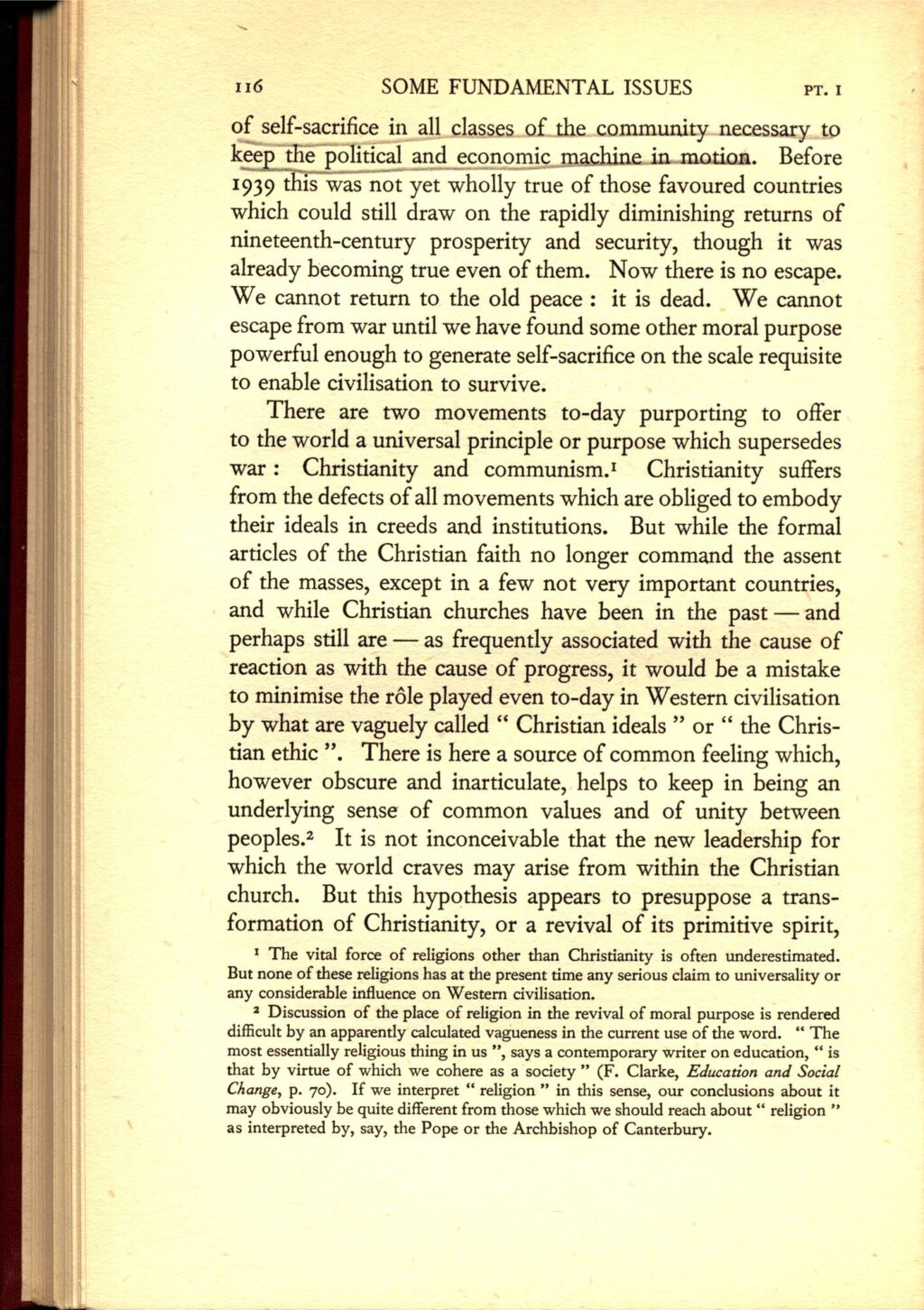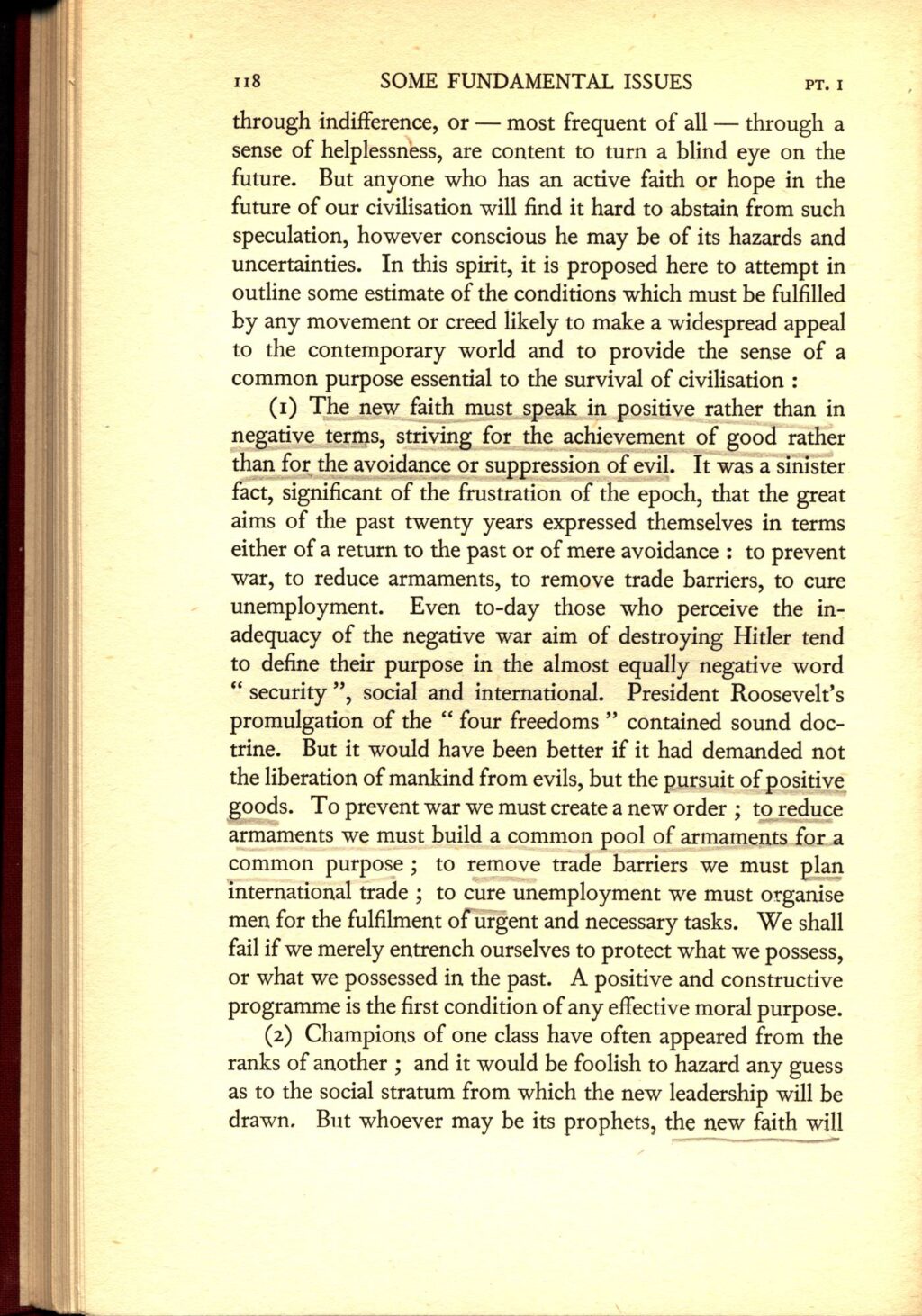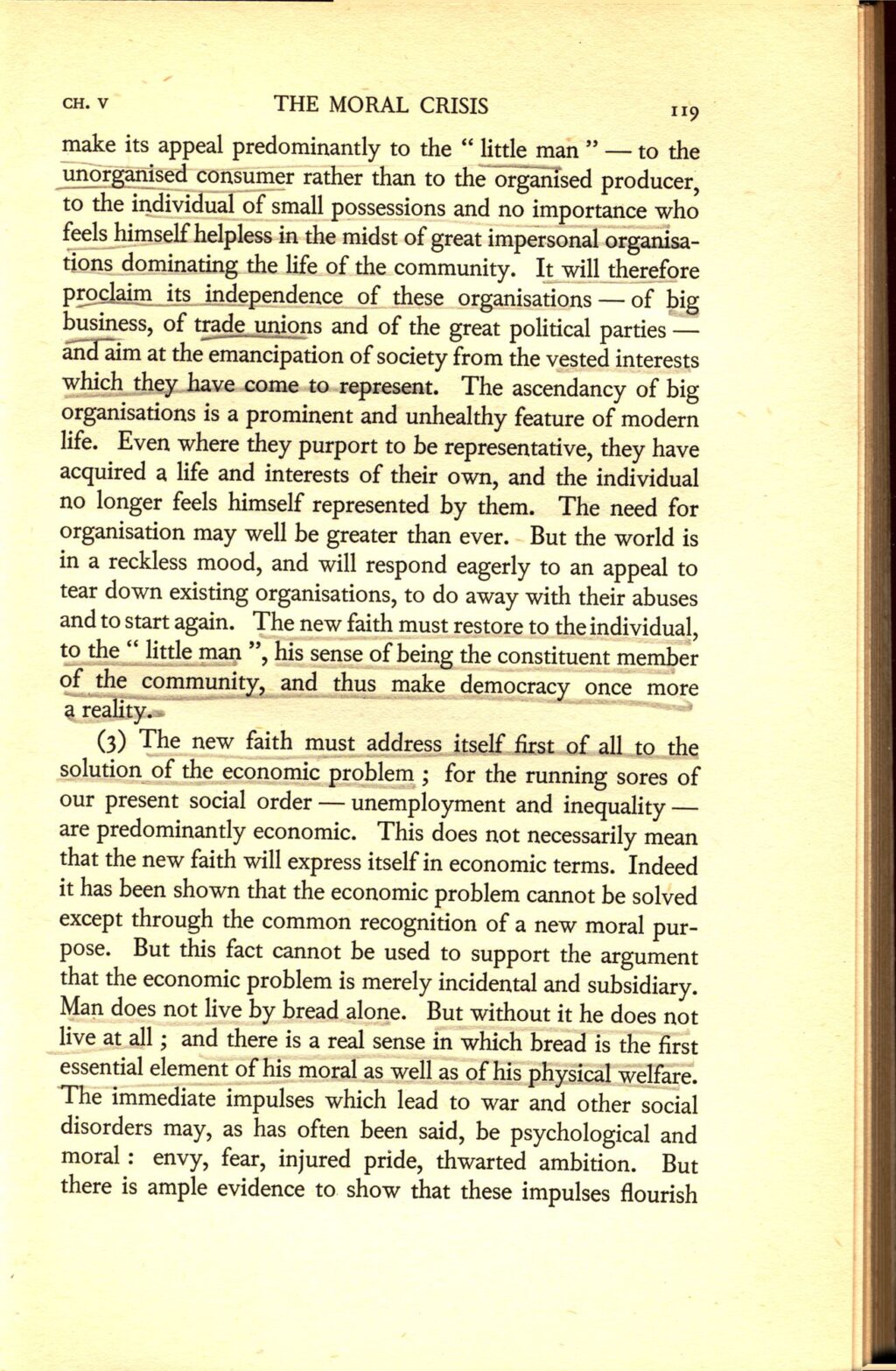| Entry type: Book | Call Number: 1743 | Barcode: 31290035256155 |
-
Author
Carr, Edward Hallett
-
Publication Date
1942
-
Place of Publication
London
-
Book-plate
No
-
Edition
Reprint
-
Number of Pages
279
-
Publication Info
hardcover
Copy specific notes
Bookplate inserted; bookseller stamp for Hugh Rees, London inside cover. P. 102 on ‘the Moral Crisis’ earmarked; highlights made in pencil include: [p. 103] “[laissez faire economics] dispensed with the need for a moral purpose to direct such planning. It was “a political theory which replaced the conception of purpose by that of mechanism” […] The nineteenth-century philosophies of Hegel and Marx were typical in their emphasis on the process rather than on the end.”; [p. 109] “The economic machine refuses to run until we discover a new moral purpose to replace the now exhausted and inoperative profit motive as the driving force”; [p. 110] “The essential nature of the crisis through which we are living is neither military, nor political, nor economics, but moral […] the corollary of this neglect of moral purpose in the philosophy of the age which is passing away was a correspondingly exaggerated belief in the supremacy of the intellect […] serious people still imagine [p. 111] that there is a “key” to our economic problem, discoverable by ingenious and studious economists [… Our civilisation is in danger of perishing without] a deliberate and avowed moral purpose, involving the call for common sacrifice for a recognised common good.”; [p. 113] “War is the most powerful instrument in effecting this transformation; and it may serve as an introduction to our enquiry to consider the precise nature of the moral function which war to-day performs in our society.”; [p. 115] “Apart from the emotional excitement associated with war, it provides a sense of meaning and purpose widely felt to be lacking in modern life. Hence war has become the most powerful known instrument of social solidarity. In the advanced countries of the world war or preparation for war is to-day the only moral purpose with the recognised capacity of inspiring the degree [p. 116] of self-sacrifice in all classes of the community necessary to keep the political and economic machine in motion.”; [p. 117] “Communism, like Christianity, has suffered from the short-comings of those who practice it. Its creed has the major defect that, true to the nineteenth-century tradition of Marxism, it expresses itself in terms of a material process rather than of a moral end.”; [p. 118] “The new faith must speak in positive rather than in negative terms, striving for the achievement of good rather than for the avoidance or suppression of evil […] the pursuit of positive goods. To prevent war we must create a new order; to reduce armaments we must build a common pool of armaments for a common purpose; to remove trade barriers we must plan international trade; to cure unemployment we must organise men for the fulfilment of urgent and necessary tasks […] The new faith will [p. 119] make its appeal predominantly to the “little man” – to the unorganised consumer rather than to the organised producer, to the individual of small possessions and no importance who feels himself helpless in the midst of great impersonal organisations dominating the life of the community. It will therefore proclaim its independence of these organisations – of big business, of trade unions and of the great political parties – and aim at the emancipation of society from the vested interests which they have come to represent […] The new faith must restore to the individual, to the “little man”, his sense of being the constituent member of the community, and thus make democracy once more a reality […] The new faith must address itself first of all to the solution of the economic problem [,,,] Man does not live by bread alone. But without it he does not live at all; and there is a real sense in which bread is the first essential element of his moral as well as of his physical welfare.”; [p. 120] “The new faith will approach the unemployment problem […] create work destined to fulfil a purpose felt by the community to be worthy of self-sacrifice […] The new faith will have to revive and renew the ideal of equality”; [p. 121] “The new faith, reversing the nineteenth-century trend, will lay more stress on obligations than on rights, on services to be rendered to the community rather than on benefits to be drawn from it.” [p. 122] “The catchword that “the state was made for man, not man for the state”, legitimate as a protest against the tyranny of totalitarianism, must not be used to cover a denial of social obligation.”; [p. 123] “Just as the social problem is complicated by the one-sided emphasis on the rights rather than on the obligations of the individual, so the international problem is complicated by an exclusive recognition of the nights of nations.”; [p. 164, concerning systems of world organisation] One popular approach is to plunge immediately into the elaboration of some constitutional framework for the whole world or for whole continents – a federation, a revived League of Nations, a “United State of Europe” – to be set up by agreement at the end of the war. There is a kind of native arrogance in the assumption that the problem of the government of mankind, which has defied human wit and human experience for centuries, can be solved out of hand by some neat paper construction of a few simple-minded enthusiasts.”; [p. 165] “But those who contemplate a revival of the League of Nations in substantially its previous form, with a few modifications designed to “strengthen” it, are open to the same condemnation as the proponents of Federal Union.”; [p. 166] “[The new and broader commonwealth of nations can only be built] up out of some such network of relationships, flexible in character and inspired by no undue itch for uniformity, to which it may some day be possible and convenient to give a more precise legal shape.”; [p. 169] “[The most distressing and unsatisfactory feature of British foreign policy between the two wars] – its failure to establish any proper coordination between ends and means.”; [p. 175] “The modification of Great Britain’s economic status in the world after the present war will therefore be profound. She will have parted, directly or indirectly, with a large proportion of her most lucrative overseas investments, so that instead of an income from this source of £200,000,000 a year – the estimate figure for 1938 – she may be able to count on not more than, say, £50,000,000 a year.”; [p. 176] Great Britain will have to produce more than before in order to maintain – and a fortiori to increase – her present standards of living; and she will have to regard rising standards of living in other countries as a matter of direct interest to herself.”; [p. 197, concerning the countries of Easter Europe] “But to attempt to organise these countries independently of Russia as a bulwark against Germany would be a fatal policy. It would antagonise Russia.”; [p. 198] “The third assumption which requires examination is that Soviet Russia can be used as a counterweight to Germany, and the balance of power in Europe thus conveniently restored without the need of permanent intervention by Great Britain […] If Great Britain were to retire from Europe, it cannot be safely assumed that Soviet Russia, with such support as she might muster on the Continent, would be permanently strong enough to hold Germany in subjection or to counter-balance German power.”; [p. 200] “Great Britain is, for good or evil, involved by military necessity in the affairs of Europe; and those who desire the maintenance of British power must accept the inevitability of British commitments in Europe […] and American interest, being bound up with the survival and security of Great Britain, is identical with British interest in maintaining British power in Europe.”.
You might also like...
Sign up to our newsletter
Sign up for our monthly newsletter to hear the latest news and receive information about upcoming events.

